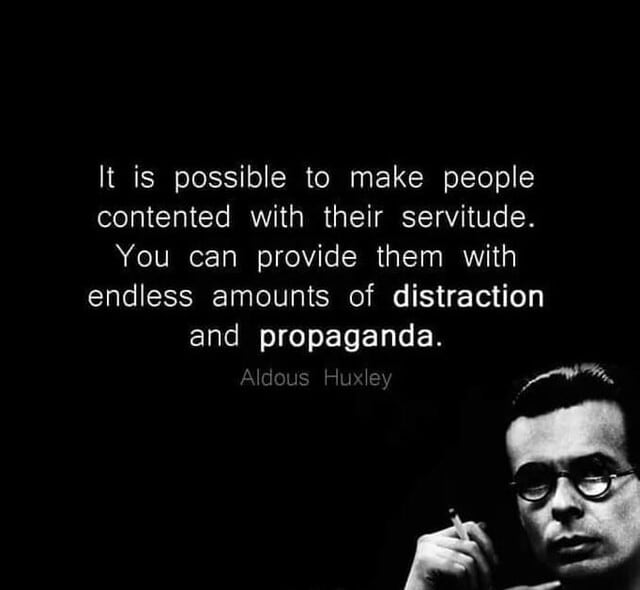
A
陰謀論は、あなたが恐れる洞窟の中のドラゴンかも?
"人生の宝を取り戻すのは、奈落の底に降りていくことだ。
躓いたところにこそ、宝がある。
あなたが怖くて入れない洞窟こそが、あなたの探しているものの源であることがわかります。
あれほど恐れていた洞窟の中の呪われたものが中心になっている。
あなたは宝石を見つけ、そしてそれはあなたを引き離す。
精神的なものを愛することで、地上的なものを軽蔑することはできない。"
~ジョセフ・キャンベル『生きる術の考察』。ジョセフ・キャンベル・コンパニオン
深み」には、個人の完全性、全体性、癒しへの鍵が含まれています。
"夢の中の全くの無意識の層である「深み」は、同時に個人の完全性と全体性、つまり癒しの鍵を含んでいるのです。全体」や「全体性」の意味は、聖なるものにすることや癒すことです。深いところに降りていくことで、癒しがもたらされます。それは、全存在への道であり、苦悩する人類が永遠に探し求めている、恐ろしい危険に守られた場所に隠された宝への道である。ここは原初的な無意識の場所であると同時に、全体性の宝石を含んでいるので、癒しと救済の場所でもあります。それはカオスのドラゴンが住んでいる洞窟であると同時に、不滅の都市であり、魔方陣(テメノス)であり、分割された人格のすべての部分が統合される聖域である」。
~C.G.ユング、タビストック講義、パラグラフ270
"神話では、英雄はドラゴンを征服する者であって、ドラゴンに食われる者ではない。また、ドラゴンに会ったことのない英雄や、一度見たとしてもその後に「何も見なかった」と宣言した英雄もいない。同様に、危険を冒してドラゴンと戦い、ドラゴンに打ち負かされなかった者だけが、「手に入れるのが難しい宝」である宝を手に入れることができる。その人だけが自信を持つことができる。~CGユング、CW14、パラ756。
キリストは十字架の死後、冥界に入り、地獄となった。そこで彼は、反キリストの姿である龍の姿になった。
古代人から伝わった反キリストのイメージは、古代人がその到来を予見していた新しい神を予告するものである。~カール・ユング『Liber Novus』242ページ。
キリストは自らを蛇に例えたが、その地獄の兄弟である反キリストは古い竜そのものである。~カール・ユング著『Liber Novus』318ページ。
特に、龍や蛇が自分の内面を脅かすということは、新しく獲得した意識が本能的な精神、無意識に再び飲み込まれてしまう危険性を指摘しているのである。~カール・ユング、CW 9i; para.282.
自然は自らに喜びを与え、いわば純粋な愛のために自らを食べている。自然は分割されていない存在として表現され、龍や蛇が自分の尾を噛み、尾の端から自分を食べているようなものである。~カール・ユング著『現代心理学』42ページ。
しかし、心理学的には、本能のイメージとしての原型は、人間の全自然が目指す精神的な目標であり、すべての川が向かう海であり、英雄がドラゴンとの戦いから奪い取る賞品である。~カール・ユング、CW8、パラ415
錬金術師がメルクリウスについて語るとき、表面的には流石(水銀)を意味していますが、内心では物質に隠された、あるいは閉じ込められた世界を創造する精神を意味しています。
錬金術における絵画的シンボルのうち、文書的証拠が残っているものとしては、おそらく龍が最も古い。
10~11世紀に作成されたマルキアヌス写本には、尾喰いのウロボロスとして登場し、「唯一であり、すべてである」という伝説とともに記されています。
錬金術師たちは、オプスは一から始まり一に戻るものであり、龍が自分の尾を噛むような円環であることを何度も繰り返している。このような理由から、作品はしばしばcirculare(円形)またはrota(車輪)と呼ばれました。
メルクリウスは作品の最初と最後に位置しています。彼はプリマテリアであり、コルヴィの頭であり、ニグレドであり、ドラゴンとして自分を食らい、ドラゴンとして死んで、ラピスの中で復活します。
彼はcauda pavonisにおける色の遊びであり、4つの要素への分割である。
彼は、初めにあった両性具有であり、古典的な兄と妹の二重性に分裂し、coniunctioで再結合し、最後に新しい石であるlumen novumの輝きのある形で再び登場する。
彼は金属でありながら液体であり、物質でありながら精神であり、冷たくありながら燃えるものであり、毒でありながら癒しのドラフトであり、すべての相反するものを統合するシンボルなのである。
~C.G.ユング、CW12、心理学と錬金術、第3部、第3.1章
あなたはある扉がなぜロックされているのかわからない。その扉の奥に何があるのかわからないからだ。しかし、その扉を破壊すれば、その奥にいるドラゴンを発見するだろう。~カール・ユング『ツァラトゥストラ・セミナー』900-902ページ
A
Conspiracy theories might be the dragon in the cave that you fear?
“It is by going down into the abyss that we recover the treasures of life.
Where you stumble, there lies your treasure.
The very cave you are afraid to enter turns out to be the source of what you are looking for.
The damned thing in the cave that was so dreaded has become the center.
You find the jewel, and it draws you off.
In loving the spiritual, you cannot despise the earthly.”
~Joseph Campbell, Reflections on the Art of Living: A Joseph Campbell Companion
The Depths contain the key to individual completeness, wholeness and healing :
"So these depths, that layer of utter unconsciousness in our dream, contain at the same time the key to individual completeness and wholeness, in other words to healing. The meaning of “whole” or “wholeness” is to make holy or to heal. The descent into the depths will bring healing. It is the way to the total being, to the treasure which suffering mankind is forever seeking, which is hidden in the place guarded by terrible danger. This is the place of primordial unconsciousness and at the same time the place of healing and redemption, because it contains the jewel of wholeness. It is the cave where the dragon of chaos lives and it is also the indestructible city, the magic circle or temenos , the sacred precinct where all the split-off parts of the personality are united."
~C.G. Jung, Tavistock Lectures, para. 270
“In myths the hero is the one who conquers the dragon, not the one who is devoured by it.. Also, he is no hero who never met the dragon, or who, if once he saw it, declared afterwards that he saw nothing. Equally, only one who has risked the fight with the dragon and is not overcome by it wins the hoard, the ‘treasure hard to attain’. He alone has a genuine claim to self-confidence, for he has faced the dark ground of his self and thereby has gained himself.” ~CG Jung, CW 14, para 756.
After death on the cross Christ went into the underworld and became Hell. So he took on the form of the Antichrist, the dragon.
The image of the Antichrist, which has come down to us from the ancients, announces the new God, whose coming the ancients had foreseen. ~Carl Jung, Liber Novus, Page 242.
Christ himself compared himself to a serpent, and his hellish brother, the Antichrist, is the old dragon himself. ~Carl Jung, Liber Novus, Page 318.
More especially the threat to one’s inmost self from dragons and serpents points to the danger of the newly acquired consciousness being swallowed up again by the instinctive psyche, the unconscious. ~Carl Jung; CW 9i; para. 282.
Nature gives itself pleasure, or eats itself out of sheer love, so to speak. Nature is then represented as an undivided being, a dragon or a snake biting its own tail, eating itself up from the tail end. ~Carl Jung, Modern Psychology, Page 42.
Psychologically, however, the archetype as an image of instinct is a spiritual goal toward which the whole nature of man strives; it is the sea to which all rivers wend their way, the prize which the hero wrests from the fight with the dragon. ~Carl Jung, CW 8, Para 415
When the alchemist speaks of Mercurius, on the face of it he means quicksilver (mercury), but inwardly he means the world-creating spirit concealed or imprisoned in matter.
The dragon is probably the oldest pictorial symbol in alchemy of which we have documentary evidence.
It appears as the Ouroboros, the tail-eater, in the Codex Marcianus, which dates from the tenth or eleventh century, together with the legend ‘the One, the All’.
Time and again the alchemists reiterate that the opus proceeds from the one and leads back to the one, that it is a sort of circle like a dragon biting its own tail. For this reason the opus was often called circulare (circular) or else rota (the wheel).
Mercurius stands at the beginning and end of the work: he is the prima materia, the caput corvi, the nigredo; as dragon he devours himself and as dragon he dies, to rise again in the lapis.
He is the play of colours in the cauda pavonis and the division into the four elements.
He is the hermaphrodite that was in the beginning, that splits into the classical brother-sister duality and is reunited in the coniunctio, to appear once again at the end in the radiant form of the lumen novum, the stone.
He is metallic yet liquid, matter yet spirit, cold yet fiery, poison and yet healing draught – a symbol uniting all the opposites.”
~C.G. Jung, CW 12, Psychology and Alchemy, Part 3, Chapter 3.1
You don’t understand why certain doors are locked because you don’t know what is behind them, but destroy those doors and you will discover the dragon behind them; you will even think that the doors are identical with this dragon that is your enemy. ~Carl Jung, Zarathustra Seminar, Pages 900-902
A
恐怖を感じなくなった人間は、奈落の底の瀬戸際にいる。~カール・ユング『手紙』第1巻、399ページ
A
集合的な恐怖は群れの本能を刺激し、群れの一員とみなされていない人々に対して獰猛さを生み出す傾向がある。~バートランド・ラッセル
A
これが大きな難点である。普通の心は一つのことしか考えられず、同時に他のことを考えることはできない。
しかし、優れた精神の持ち主は、逆説的に考えることができるからこそ、優れているのである。~カール・ユング著「個人化プロセスの夢の象徴」281ページ
第一級の知性のテストは、二つの相反する考えを同時に心の中に保持し、なおかつ機能する能力を保持する能力である。~F. スコット・フィッツジェラルド、「The Crack-Up」、エスクァイア誌(1936年2月)。
ある考えを受け入れることなく、その考えを受け入れることができるのは、教養ある心の証である。~アリストテレス
自由思想家とは、自分の習慣や特権、信念と衝突するものを理解することを恐れず、偏見を持たずに頭を使うことを厭わない人たちである。
このような精神状態は一般的ではありませんが、正しい考え方をするためには必要不可欠です...。
~トルストイ(Leo Tolstoy
A
A man who has no more fear is on the brink of the abyss. ~Carl Jung, Letters Vol. 1, Page 399.
A
Collective fear stimulates herd instinct, and tends to produce ferocity towards those who are not regarded as members of the herd. ~Bertrand Russell
A
This is the great difficulty: the ordinary mind can only think one thing and cannot at the same time think the other thing.
He cannot think of a thing that is and is not, for that is impossible; but the man of superior mind is superior only because he can think in paradoxes. ~Carl Jung, Dream Symbols of the Individuation Process, Page 281
The test of a first rate intelligence is the ability to hold two opposed ideas in the mind at the same time, and still retain the ability to function. ~F. Scott Fitzgerald, "The Crack-Up", Esquire Magazine (Feb 1936).
It is the mark of an educated mind to be able to entertain a thought without accepting it. ~Aristotle.
Freethinkers are those who are willing to use their minds without prejudice and without fearing to understand things that clash with their own customs, privileges, or beliefs.
This state of mind is not common, but it is essential for right thinking...
~Leo Tolstoy
陰謀論の心理学
https://reportingforbeauty.substack.com/p/on-the-psychology-of-the-conspiracy-7ff?fbclid=IwAR0oimCcgLAtfMHNRK8y_PoObMYsgxRyfOO15nmnjsOlsqt-Y_0C92sW8Cs













